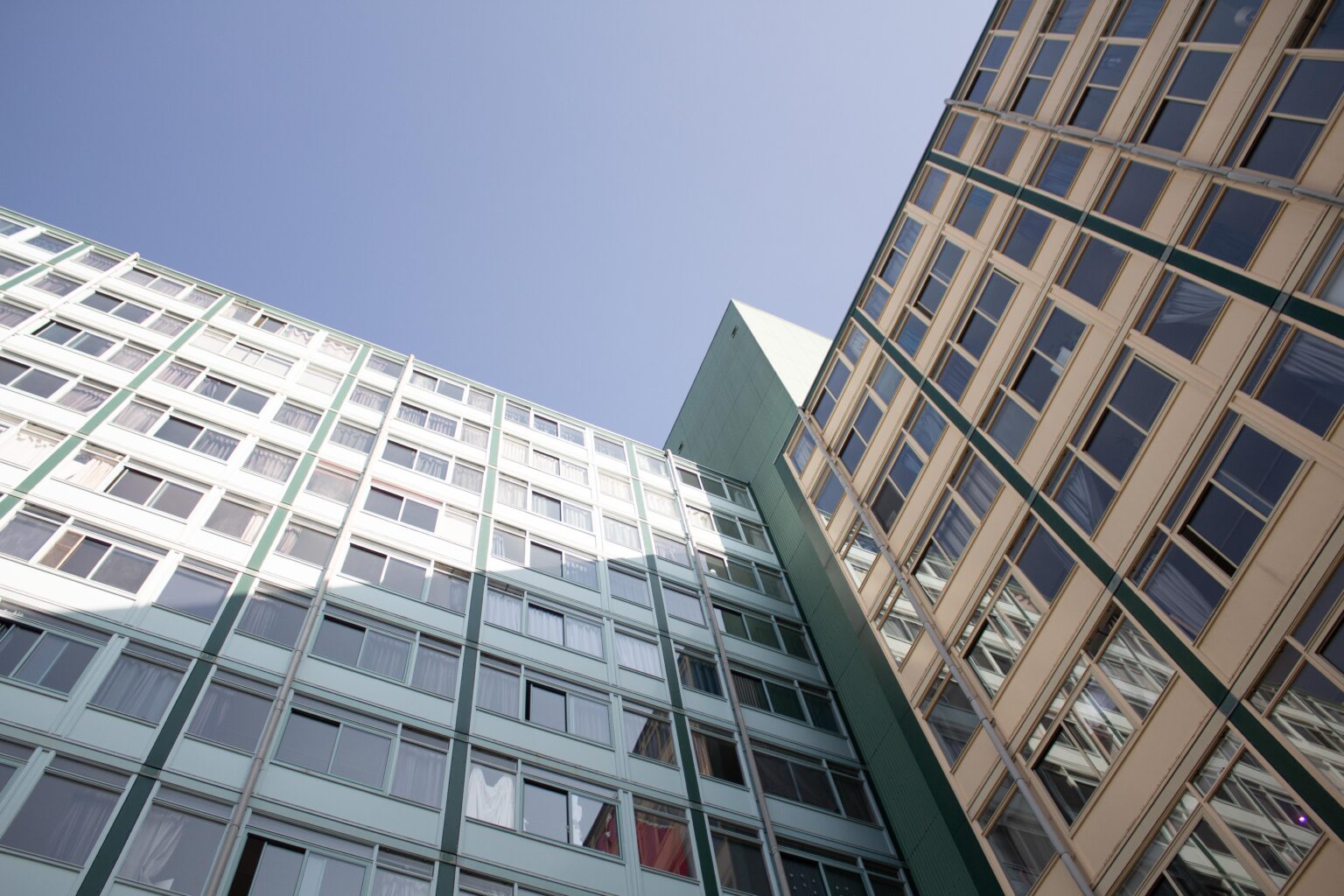A motion adopted unanimously by the Delft Municipal Council on 2 November states that Delft must fulfil its promise for more shared student accommodation.
Student housing at the Van Hasseltlaan. (Photo: Justyna Botor)
The impetus for this is the intention of student housing corporation Duwo to redevelop the complex on the Van Hasseltlaan, where currently 845 students live, and build an unspecified number of additional units. There is no finalised plan yet, just a framework (PUK, in Dutch) that explores under what conditions the municipality would permit such a plan.
The PUK states that only 10% (minimally) of the redeveloped complex would consist of shared accommodation, although Duwo agreed in performance agreements with the municipality that half of any new construction would be shared houses.
Intermediate solution
The 10% that Duwo wants to realise now are so-called Sting apartments: independent living quarters with its own small kitchen, bathroom and wc, a larger communal kitchen and a shared living room. It is an intermediate form between a student house and an independent apartment. Building this construction is more attractive to developers financially than shared student houses, because the residents of Sting houses can obtain a housing benefit, so the rents can be higher.
The motion (in Dutch) tabled by Stip, ChristenUnie, D66, GroenLinks, PvdA and Volt, which was adopted unanimously by the Municipal Council on 2 November, calls Sting ‘an incomplete form of shared accommodation, but is an intermediate solution until building shared student accommodation becomes affordable again’. The parties continue to stress shared accommodation to prevent loneliness among the students.
Residential mix
Even though the parties consider Sting not to be optimal, they are not happy about Duwo’s starting point of only making 10% of the accommodation on the Van Hasseltlaan in this format. They are insisting that the Delft Municipal Executive (College van B&W) force Duwo to increase the percentage to at least 25%.
The Council also wants the Executive to reconsider the ‘residential mix’ when it is time to take a decision about the new draft zoning plan for the Van Hasseltlaan. It is not clear when that will happen. In the PUK Duwo specified only the period 2023 to 2035, during which time the project must be completed.
Do you have a question or comment about this article?
s.m.bonger@tudelft.nl


Comments are closed.